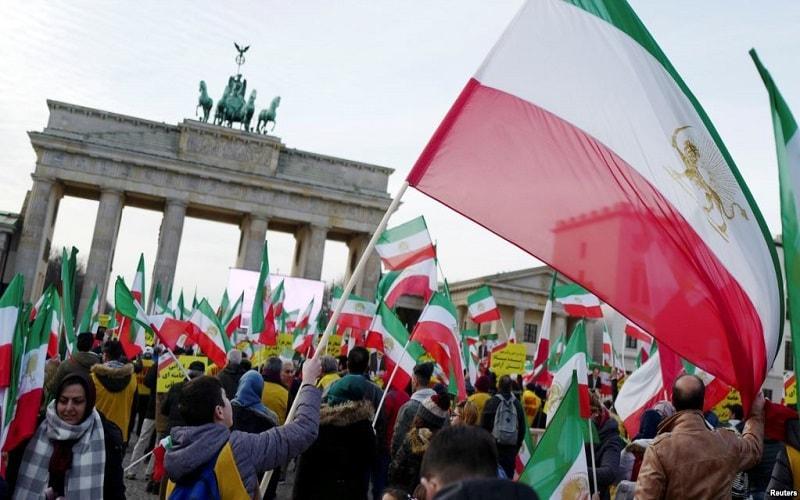PMOI/MEK is leading the uprising in Iran, Khamenei admits
At the beginning of this year, when the Iranian people took to the streets widely and called for the overthrow of the mullahs’ rule, some Western governments and some lobbyists of the Iranian regime who tended to preserve and maintain the current Iranian government were constantly saying that the uprising did not have organization and leadership, and Most people are poor people who want to improve the economic situation,
but the world knew well that the current uprising is not dependent on any of the internal factions or internal groups of the regime. According to Ms. Rajavi, “there is no illusion about reform or gradual change from within.” A popular slogan in Tehran is “hardliners, reformists, the game is over”.
But just a few days after uprising, the regime’s President Hassan Rouhani, without mentioning any name, called on France to limit the activities of the opposition of the Iranian regime, the National Council of Resistance of Iran (NCRI) leads by Mrs. Maryam Rajavi.
On Tuesday, January 9, the regime’s current supreme leader Ali Khamenei said in a televised speech in Qom that the MEK were responsible for “leading” the current uprisings. Khamenei said that the MEK/PMOI “had been ready for months … They organized since several months ago, and met various people; to select some people inside the country, find them and help them, so they would come and call [for uprising]. … They managed to attract some people with this slogan(No to starvation (And then, they could come to the scene and pursue their goals, and make the people follow them.”
What You Should Know About Iranian Resistance Leader Maryam Rajavi
It should be remembered that Tehran has made every effort to suppress and destroy MEK since the advent of the Islamic Republic. The organization played a role in the 1979 revolution against the Shah, but opposed the establishment of absolute clerical rule. Since then, it has been a tireless advocate for regime change in favor of a democratic system.
In 1988, at the end of the eight-year war between Iran and Iraq, Ayatollah Khomeini issued a fatwa declaring all enemies of the clerical regime “at war with God.” Those who refused to disavow their loyalty to opposition groups were to be executed. As a result, political prisoners throughout the country were hauled before “death commissions” for brief interrogations to determine whether they would live or die.
In the summer of 1988 alone, approximately 30,000 dissidents were put to death, the overwhelming majority of them MEK members and associates.
The Mojahideen (PMOI/MEK) and the National Council of Resistance of Iran (NCRI), now led by Mrs. Maryam Rajavi, are the most active and greatest anti-mullahs force. They are highly credited among political groups and parties from Europe and the United States. They are the main and the unique democratic alternative to the Mullahs’ regime. They have succeeded in expanding their net inside Iran and attracting the Youngs and educated community and organizing them against the mullahs.
Iran: a Short History of the Mek
These days are well known that the regime’s efforts to destroy the movement are not over. And by admitting the extent of the MEK’s influence, Khamenei has potentially set the stage for a broader crackdown. There is no telling how many Iranians could face capital punishment for merely protesting alongside the MEK.
Now that even Khamenei has highlighted the strength of the MEK and the popularity of its calls for regime change, Western leaders should consider the implications for their Iran policy. Tehran has made every effort to portray an image of stability, while denying that it faces serious domestic threats. Now that the secret is out, the world should recognize the opportunity that the MEK and the Iranian people have to bring democracy to their country.
